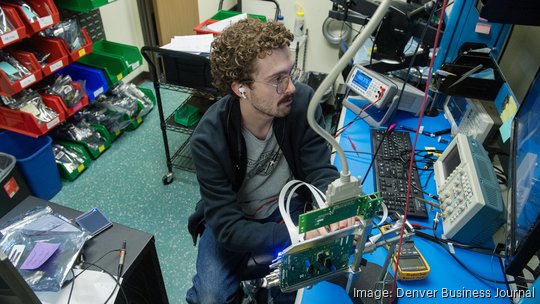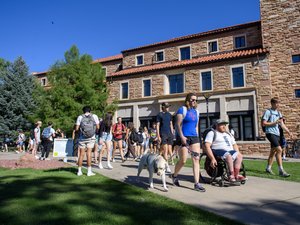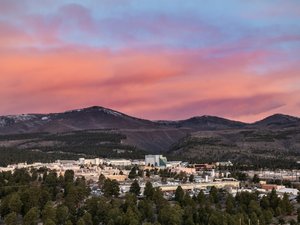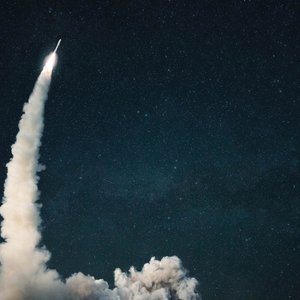
The U.S. Economic Development Administration on Tuesday named a coalition of companies, higher education institutions and other organizations in Colorado and New Mexico as one of 12 ‘tech hub’ grant recipients. The award will unlock up to $127 million to spur development of the region’s quantum industry.
Quantum is the physics of the very small and very cold. Quantum technology proponents say it can store more information and solve complex problems that may be impossible using traditional computers. The technology can be used to fight infectious diseases, stabilize financial markets and more, experts say.
The 70-plus-member quantum consortium between the two states, called Elevate Quantum, was named one of 31 regional tech hubs in October. The designation under the U.S. Tech Hubs program, enacted as part of the federal CHIPS and Science Act of 2022, allowed the coalition to bid for up to $75 million through a phase-two funding opportunity.
“Colorado is the Silicon Valley of the quantum era, and Elevate Quantum is going to lead us there,” said Sen. John Hickenlooper, a Colorado Democrat, in a statement. “This is Colorado’s next great success story.”
Elevate Quantum is set to receive $40.5 million through a federal implementation grant for its regional quantum plans, said Zachary Yerushalmi, the consortium’s CEO.
More regional funding will come from the state government. Colorado pledged $77 million in matching funds for the industry. New Mexico committed $10 million in matching funds, Yerushalmi said.
Today’s investment represents a “down payment” on the next 50 years of quantum leadership and development in the U.S., Elevate Quantum said in a release.
“This award will be a game-changer for our industry, providing an opportunity for researchers and companies to innovate side-by-side, accelerating the development and commercialization of quantum technologies,” said Corban Tillemann-Dick, Elevate Quantum co-founder and CEO of Denver-based Maybell Quantum Industries, in a statement.
A contract between Elevate Quantum and the U.S. Economic Development Administration (EDA), which would lock in the federal funding and establish timelines for specific program implementation, is still being finalized, Yerushalmi said.
“This award marks the first large-scale, place-based federal investment in quantum,” he said in a statement. “We are honored to be acknowledged as a driving force in the global race for quantum innovation, and this funding marks a critical milestone in securing U.S. quantum leadership.”

A portion of state and federal money will help fund the creation of more industry jobs.
Job creation, which Elevate Quantum predicts will exceed 10,000 quantum jobs by 2030, includes more than scientists. It includes a vast majority of jobs that don’t require four-year degrees, such as mechanics and assembly techs, experts say.
Elevate Quantum’s workforce development plans also include launching a mobile “Quantum Learning Lab” in Colorado and New Mexico to provide trainees “all the basic skills that you need in order to be a technician,” Yerushalmi said. Some money would go toward quantum curriculum-based efforts, too, at colleges and universities in the state.
Some funds will also go toward creating world-class open-access quantum facilities for researchers and entrepreneurs in the region.
The University of Colorado Boulder received a $20 million grant in June from the U.S. National Science Foundation to open what it is calling the “quantum machine shop of the 21st century.” The facility, known as National Quantum Nanofab (NQN), will allow researchers and quantum scientists to design and build quantum devices, according to the university.
More details on the timeframe for those programs would come after the contract between Elevate Quantum and the EDA is finalized, Yerushalmi said, which he added could happen “reasonably soon.”
The Mountain West's regional coalition of quantum leaders is the largest in the world, according to Yerushalmi.
Colorado is home to several quantum companies, including Atom Computing, Infleqtion, Maybell Quantum, Quantinuum and Vescent. New Mexico is home to several quantum-related research labs at the University of New Mexico, Los Alamos National Laboratory and Sandia National Labs.
The coalition expects future funding opportunities to become available beyond the initial implementation grant, Yerushalmi added. The CHIPS and Science Act authorized $10 billion for the national Tech Hubs program over a five-year period. EDA has appropriated $541 million of that $10 billion total to date.
Other Tech Hubs that landed implementation grants include a lithium batteries and electric vehicle materials-focused hub led by the University of Nevada, Reno, an autonomous systems hub led by Tulsa Innovation Labs in Oklahoma and a hub focused on “photonic sensor systems” in Montana, according to an EDA press release. Grant awards ranged from $21 million to $51 million, totaling $504 million in federal funding.
A previous version of this story incorrectly attributed a statement provided by Sen. John Hickenlooper. The story has been updated.








